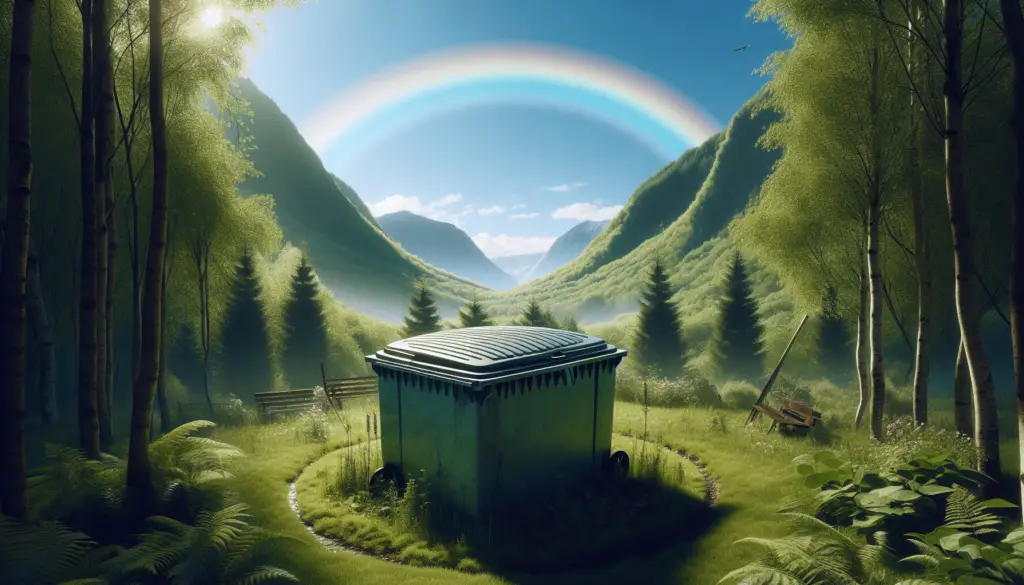Are you struggling with waste management off the grid?
Whether you live in a remote cabin or are looking to decrease your environmental impact, managing waste off the grid can be a challenge. In this article, we will discuss strategies for sustainable off-grid waste management that you can implement in your daily life.
The Importance of Sustainable Waste Management
Understanding the importance of sustainable waste management is the first step towards making a positive impact on the environment. Proper waste management not only reduces pollution but also conserves natural resources, protects wildlife, and safeguards public health. By implementing sustainable waste management practices, you can contribute to a cleaner and healthier environment for future generations.
Why should You Care?
Implementing sustainable waste management practices may seem like a small step, but collectively, these actions can lead to significant positive changes for the environment. By taking responsibility for our waste, we can reduce our carbon footprint, protect ecosystems, and create a more sustainable future for ourselves and our communities.
Types of Waste
Before diving into waste management strategies, it’s essential to understand the different types of waste that you may encounter off the grid. Waste can generally be categorized into three main types:
1. Organic Waste
Organic waste includes biodegradable materials such as food scraps, yard waste, and paper products. It is essential to separate organic waste from other types of waste because it can be composted and turned into valuable soil conditioner for gardens.
2. Recyclable Waste
Recyclable waste consists of materials that can be processed and reused, such as glass, plastic, metal, and paper. Recycling these materials helps conserve natural resources, reduce energy consumption, and minimize the environmental impact of waste disposal.
3. Hazardous Waste
Hazardous waste includes potentially harmful materials such as batteries, electronics, chemicals, and medical waste. Proper disposal of hazardous waste is crucial to prevent contamination of soil, water, and air, as well as minimize health risks to humans and wildlife.

Implementing Sustainable Off-Grid Waste Management Strategies
Now that you have a better understanding of the importance of sustainable waste management and the different types of waste, let’s explore some practical strategies for managing waste off the grid in an eco-friendly and sustainable manner.
1. Composting Organic Waste
Composting is a natural process that decomposes organic waste into nutrient-rich soil amendment known as compost. You can easily start composting at your off-grid location by setting up a compost pile or bin for your food scraps, yard waste, and other organic materials. Compost can be used to enrich the soil in your garden, reduce the need for chemical fertilizers, and promote healthy plant growth.
2. Recycling Recyclable Waste
Recycling is a simple and effective way to reduce waste, conserve resources, and minimize environmental impact. Set up a recycling system at your off-grid location by collecting and sorting recyclable materials such as glass, plastic, metal, and paper. Many communities offer recycling programs or drop-off centers where you can dispose of recyclable waste properly.
3. Upcycling and Repurposing
Instead of throwing away items that may seem like waste, consider upcycling or repurposing them into something useful. Get creative with old furniture, clothing, containers, or other materials to give them a new life and prevent them from ending up in the landfill. Upcycling not only reduces waste but also allows you to showcase your creativity and resourcefulness.
4. Reducing Packaging Waste
One of the easiest ways to minimize waste off the grid is to reduce packaging waste from your purchases. Choose products with minimal or eco-friendly packaging, buy in bulk to reduce single-use packaging, and opt for reusable containers and bags whenever possible. By making conscious choices about the products you buy, you can significantly reduce the amount of packaging waste generated at your off-grid location.
5. Managing Hazardous Waste Properly
Proper disposal of hazardous waste is essential to protect human health and the environment. Keep hazardous waste materials such as batteries, electronics, chemicals, and medical waste separate from other types of waste to prevent contamination. Research local hazardous waste disposal options or collection events in your area to ensure safe and proper disposal of these materials.
6. Implementing a Waste Management Plan
Developing a waste management plan for your off-grid location can help you effectively manage waste, improve recycling practices, and reduce environmental impact. Identify the types of waste generated, establish recycling and composting systems, set goals for waste reduction, and educate others about sustainable waste management practices. Regularly monitor and evaluate your waste management plan to make necessary adjustments and improvements.
Resources and Support for Sustainable Waste Management
If you are looking for additional resources and support for implementing sustainable waste management practices off the grid, consider reaching out to local environmental organizations, waste management companies, or community groups. These organizations can provide valuable information, resources, and guidance on waste reduction, recycling, composting, and hazardous waste disposal.

Conclusion
By taking proactive steps to implement sustainable waste management practices at your off-grid location, you can make a positive impact on the environment and contribute to a cleaner, healthier planet. Whether you are composting organic waste, recycling recyclable materials, or upcycling everyday items, every small action counts towards creating a more sustainable future for ourselves and future generations. Remember, it’s never too late to start making a difference – start managing your waste sustainably today!
